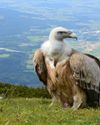
They are ecosystem engineers seed dispersers, pollinators and scavengers. Research shows that biodiversity loss is one of the most significant environmental challenges facing the earth today. The evolution of waterbirds is often mainly centred on adaptations to improve feeding techniques. This includes legs adapted to diving or wading, and the webbing between the toes. Many of these adaptations are shared between different types of waterbirds. For example, flamingos and ducks share a similar filter-feeding lifestyle. Water birds are a large and varied group of birds. Most are exclusive to freshwater sources such as rivers, lakes, dams and wetlands.
However, many sea and shore birds can also regularly be found in freshwater, e.g., cormorants and migratory waders. Water birds include ducks, geese and swans (Order Anseriformes); grebes (Order Podicipediformes); pelicans, darters and many cormorants (Order Pelecaniformes); herons, ibises, spoonbills and storks (Order Ciconiiformes); cranes, rails, moorhens and coots (Order Gruiformes); and several waders (Order Charadriiformes) The term aquatic bird is sometimes also used in this context. A related term that has a narrower meaning is waterfowl. Some piscivorous birds of prey, such as ospreys and sea eagles, hunt aquatic prey but do not stay in water for long, live predominantly over dry land, and are not considered water birds. The term waterbird is also used in conservation to refer to any birds that inhabit or depend on bodies of water or wetland areas.
This story is from the {{IssueName}} edition of {{MagazineName}}.
Start your 7-day Magzter GOLD free trial to access thousands of curated premium stories, and 9,000+ magazines and newspapers.
Already a subscriber ? Sign In
This story is from the {{IssueName}} edition of {{MagazineName}}.
Start your 7-day Magzter GOLD free trial to access thousands of curated premium stories, and 9,000+ magazines and newspapers.
Already a subscriber? Sign In

Building world's 1st pyramid
In a preprint study published this summer, researchers proposed that ancient Egyptians built the world's first pyramid the 4,700-year-old Step Pyramid of Djoser, which sits on Egypt's Saqqara plateau using a \"modern hydraulic system\" powered by a long-gone branch of the Nile River.

Climate change arms the world, ovarian cancer pulls the trigger.It's time we disarm them both
Climate change, driven by human activities, leads to environmental changes such as rising temperatures, altered weather patterns, and increased pollution.

Climate Change Added 18 mph to Hurricane Wind Speeds over Past 5 Years
High ocean temperatures caused by global warming boosted maximum intensities for most storms between 2019 and 2023, as well as for every 2024 hurricane.

How Indian Vulture Decline Led to 500,000 Deaths in 5 Years
Once a common sight across India, vultures were abundant scavengers, often seen circling landfills in search of carcasses.

Understanding Monkeypox: Insights and Implications
Monkeypox, a viral zoonotic disease, has gained significant attention in recent years due to its re-emergence and sporadic outbreaks globally.

AI predicts that most of the world will see temperatures rise to 3°C much faster than previously expected
Three leading climate scientists have combined insights from 10 global climate models and, with the help of artificial intelligence (AI), conclude that regional warming thresholds are likely to be reached faster than previously estimated.

Infrared Radiation: A New Player In Mosquito Host-Seeking
The sound of mosquitoes is all around us when the sun sets and the air gets warm and sweltering.

Fish Oil May Benefit to Cure Alzheimer's, disorder: new findings
The benefits of fish and fish oil consumption are well-known in medical science as fish is considered a precious food resource that provides sufficient nutrition to humans.

A new class of antivirals could help prevent future pandemics
The arrival of Paxlovid in December 2021 marked another turning point in the COVID-19 pandemic an effective antiviral that has since successfully treated millions.

Turning carbon emissions into methane fuel
Chemists have developed a novel way to capture and convert carbon dioxide into methane, suggesting that future gas emissions could be converted into an alternative fuel using electricity from renewable sources. Carbon dioxide (CO2) is a greenhouse gas that accounts for a large part of Earth's warming climate, and is produced by power plants, factories and various forms of transportation.